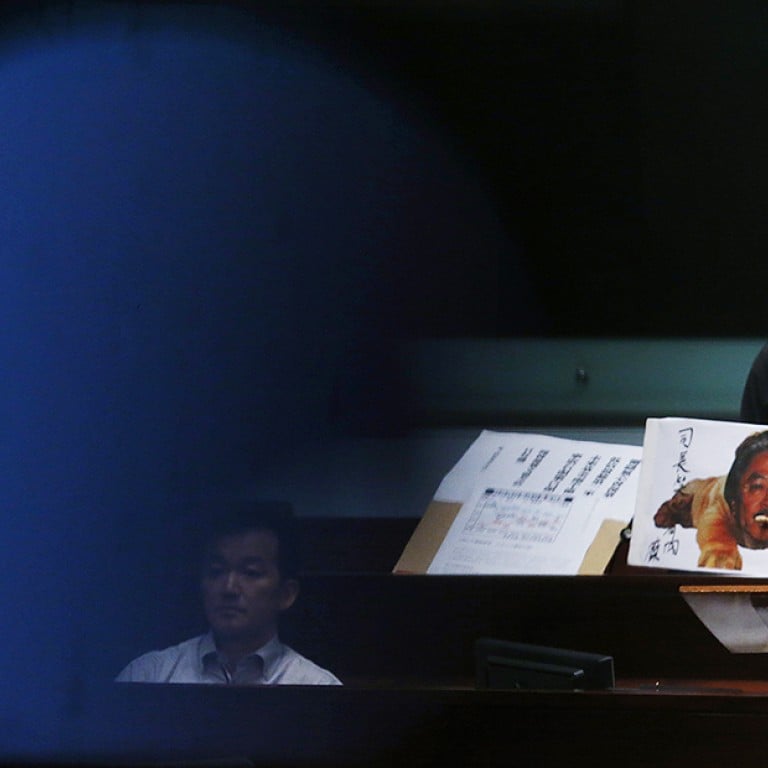
Filibuster spectacle only shows up Legco dysfunction
Stephen Vines says lawmaking gets short shrift in 'opposition chamber'
In the classic 1939 Hollywood film an anguished rookie senator, played by Jimmy Stewart, launches a one-man filibuster for reasons everyone has forgotten but in a manner that made him a hero.
Filibusters are commonplace in the United States legislature; senator Strom Thurmond set a record in 1957 by speaking for 24 hours and 18 minutes to stop a vote on a civil rights bill, and filibusters continue to this day. Many Americans regard it as a way of upholding the people's rights and liberties; governments tend to see them as a damn nuisance.
In Hong Kong, where political savvy is thin on the ground, a small group of legislators have recently discovered the filibuster and work on the dumb principle that just because it has not worked in the past, there's no reason not to try again.
These lawmakers have little chance of being rewarded with hero status for their efforts; on the contrary and rather absurdly, they are accused of holding Hong Kong to ransom by staging a rather lacklustre filibuster which has delayed passage of the government's budget.
Top officials have been wheeled out to wag fingers and warn of the dire consequences of delaying implementation of the budget. Unfortunately, the leader of the finger-waggers, Financial Secretary John Tsang Chun-wah, rather let the cat out of the bag when he conceded that there was no problem putting interim funding measures in place but was loath to do so because it would only encourage further filibusters.
There has been no edifying political debate going on, merely a slowing down of a rather unimpressive set of budget proposals by a handful of legislators with half-baked ideas.
If any useful purpose is being served, it is to remind us of the absurdity of the way the legislature operates. Basically, it is designed as an opposition chamber because its members are not allowed to do anything positive like introduce legislation.
They need government permission to introduce laws; in practice, this means that no member has succeeded in creating new statute. And I cannot recall the government accepting a substantive amendment to any of its bills. It basically uses the pro-government majority to push through whatever it proposes without the kind of changes that improve legislation in other jurisdictions.
Sometimes, the government is blocked and its bills are stillborn, but the idea that officials could come to the legislature for a real discussion on how to improve a piece of legislation is anathema.
Other governments can point to their mandate from the people in arguing against obstruction of their legislation. But the Hong Kong government has no mandate from anyone, aside from the rigged small-circle committee who "elect" the chief executive.
There is also no such thing as a legal entity for political parties so they operate in a strange hinterland where the most powerful party refuses to emerge into daylight, those connected with it stand in line for rewards, while others focus on ways to thwart the government because they have no hope of seeing their own plans realised.
The worst aspects of the colonial era have been seamlessly incorporated into the new order where haughty civil servants, convinced of their omnipotence, dream up legislation and patronisingly tell anyone who questions them that they alone have the competence to run government and they really don't need any interference from outside.
It is therefore no surprise to discover that a system built to be dysfunctional is precisely that. Although there is a debate under way over constitutional reform, it quite amazingly does not address this dysfunction at the heart of government.

